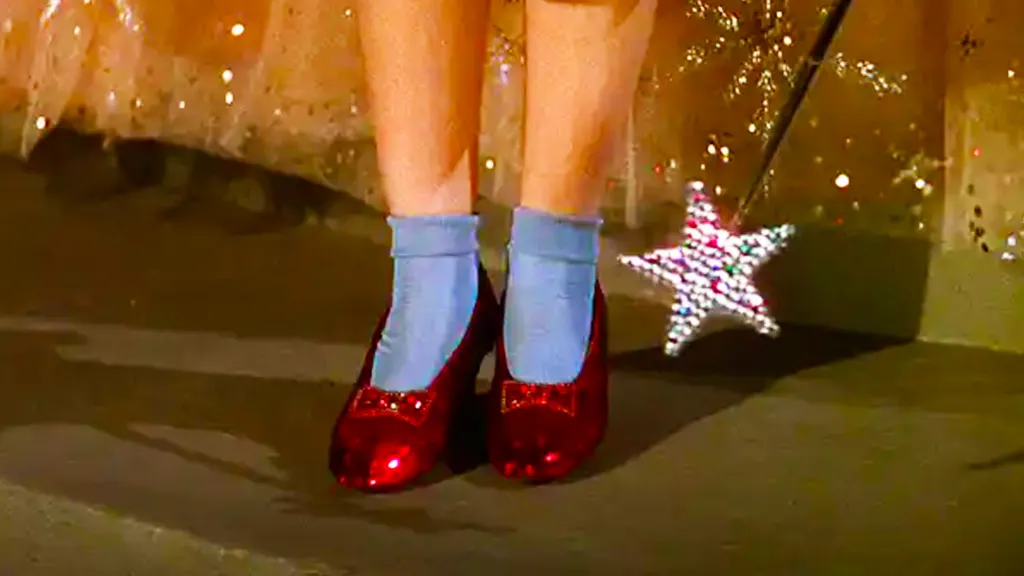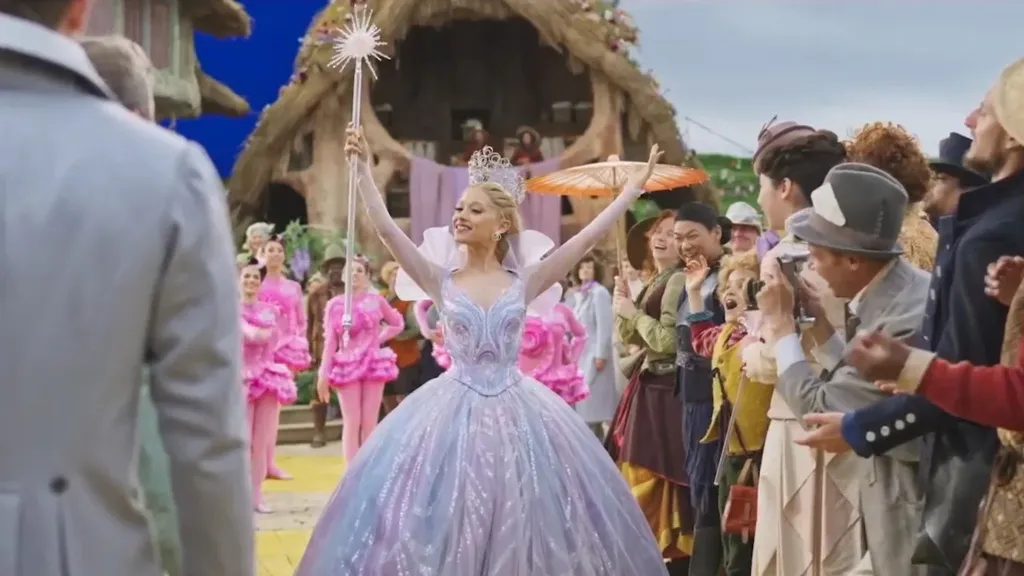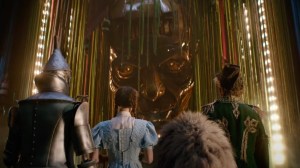The film version of the iconic Broadway musical, Wicked, has finally debuted, bringing the epic tale of Elphaba and Glinda to its dramatic close in Wicked: For Good. The film tackles the enormous task of making a coherent and canonical connection between the beloved Broadway prequel with the classic 1939 film, The Wizard of Oz. However, in For Good’s final moments, a major inconsistency regarding Dorothy’s ability to get back to Kansas is brought up. In The Wizard of Oz, Glinda famously gives Dorothy the simple, magical instruction—click her heels three times and say “there’s no place like home.” However, the world established by Wicked hinges on a foundational twist: Glinda does not possess any magical talent. Though the closing moments of For Good imply that Glinda will be capable of using magic in the future, this happens after Dorothy is gone, creating an unavoidable inconsistency.
Videos by ComicBook.com
Glinda’s lack of magical abilities makes it impossible for her to enchant the ruby slippers to send Dorothy back to Kansas.
How Did Glinda Know About the Three Clicks?

The genius of Wicked lies in its reimagining of the witches who have been a staple of pop culture since 1939. But this revisionary prequel ultimately creates a flaw that For Good was tasked—and failed—to resolve. Glinda’s entire arc in both parts of the film and the Broadway show is defined by her inability to use magic. By the end of For Good, Glinda chooses to assume the role of Glinda the Good, becoming the leader of Oz to honor her promise to Elphaba. She remains in Oz to fight the corruption the Wizard and Madame Morrible left in their wake, a choice that requires political performance and public relations over magical skill. The final scene of For Good reinforces this: Glinda is grounded, emotional, and committed to a life of politics in Elphaba’s spirit.
Glinda’s ultimate resolution is emotional, particularly considering her relationship with Elphaba and her grief over Elphaba and Fiyero’s “deaths.” However, waiting until the very closing moments of the film to suggest Glinda has the capacity to learn magic (sometime in the future) is disastrous when viewed through the lens of The Wizard of Oz. The Glinda who appears in The Wizard of Oz is a “good witch” with magical mastery. She arrives in a bubble, speaks with the authority of deep magical knowledge, and understands the precise enchanted laws governing the Ruby Slippers. This Glinda is entirely incompatible with the Glinda we watch bid a heartwrenching goodbye to Elphaba.
The Glinda we see in For Good has absolutely no capability for arcane arts, which is the sole requirement for her to have the power to perform her most famous act of sending Dorothy home. The film asks the audience to accept that the political icon of Oz, who hasn’t learned any magic yet, is somehow capable of casting a complex inter-dimensional enchantment. While For Good establishes that Glinda’s post-Wizard role is meant to be ceremonial, a symbol of “goodness,” she does not yet possess the technical knowledge required for the heel-clicking spell. This inconsistency undermines the satisfying conclusion of the Wicked film saga by making Glinda’s iconic spell in The Wizard of Oz entirely impossible.
Glinda Lacks Both Knowledge and Magic

To reconcile Glinda’s lack of power with her crucial canonical role in The Wizard of Oz, Wicked (and now For Good) perhaps relies on a specific piece of lore that is not outright stated: the Ruby Slippers inherently grant the wearer their deepest “heart’s desire.” Because Dorothy’s only desire is to return home, the shoes are essentially a self-activating spell. This take successfully takes the burden off of Glinda’s shoulders from having to cast a spell to send Dorothy home. However, it critically fails to explain how Glinda knows the shoes’ activation mechanism: clicking the heels three times. For Good implies that Glinda gave Dorothy Nessa’s slippers because she did not know what else to do to inspire the young girl, and for no other reason.
If Glinda is not a true, powerful sorceress capable of magically creating the enchanted slippers herself or sensing the inherent magical function inside them, then her knowledge of the three-click code must have come from somewhere or someone else. But who?
The shoes belonged to the Wicked Witch of the East (Nessa), who had just been crushed to death under a house. Furthermore, the one time we see the slippers exhibit any magical properties is when Elphaba specifically enchants them to allow Nessa to float in the air.
It is impossible that Glinda learned any sort of spell between the time Elphaba enchanted the slippers and Dorothy was sent home. And even if she somehow did learn the words for a spell, she cannot actually cast it due to her lack of magical powers. If the mechanism of the shoes relies on one’s internal wish to cross dimensions, is such a specific and powerful secret that it should either be universally known by all citizens of Oz or kept only by the
Thropp family—the ones who own the shoes. If it were universally known, Dorothy’s journey to the Wizard, which is the entire premise of The Wizard of Oz, would be pointless, as the Scarecrow or Tin Man would have simply told her what to do, especially considering that Fiyero (the Scarecrow) and Tin Man (Boq) were each linked with the Thropp sisters—Fiyero with Elphaba and Boq with Nessa.
Since the knowledge is clearly not common, Glinda must have come by it through insight or pure dumb luck. However, this contradicts the entire lore that Glinda has no magical abilities as established in Wicked. Audiences are left with no explanation for how Glinda truly sent Dorothy home. Her instruction to Dorothy in the classic film is now framed, retroactively, by Wicked: For Good, as either an unearned piece of knowledge passed down illogically through completely unknown ways, or a convenient coincidence that allows the plot of The Wizard of Oz to move forward.
The dramatic weight of Glinda’s character arc, which is beautifully executed in For Good, is ultimately undermined by the logistical necessity of her role in The Wizard of Oz. By making Glinda’s farewell to Elphaba so final, the film takes away the only other person who could have helped Glinda enchant the shoes for Dorothy, considering Glinda is magically incapable. The solution relies entirely on the slippers being magical artifacts, but the film provides no context or justification for that theory.
What do you think? Leave a comment below and join the conversation now in the ComicBook Forum!









